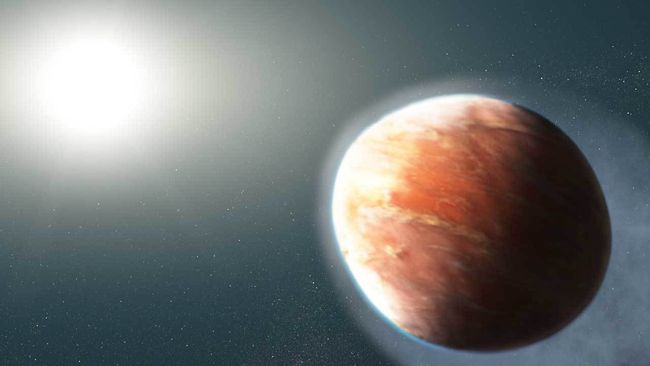Heavy-Metal Alien Planet May be Shaped Like a Football
By Charles Q. ChoiAn exoplanet may be shaped like an American football due to the mighty gravitational forces it experiences close to its star, a new study finds.
Scientists investigated KOI 1843.03, an exoplanet candidate that scientists need further observations to say for sure is real. This world putatively orbits a red dwarf star with slightly less than half the mass of our sun and is located about 395 light-years from Earth. Previous research found KOI 1843.03 was about 44% Earth’s mass and 60% Earth’s diameter.
An artist’s depiction of a distorted exoplanet.
(Image: © NASA, ESA, and J. Olmsted (STScI))Prior work suggested KOI 1843.03 orbited its star more closely than any other planet known yet. “Whizzing around its star in only 4.245 hours, a ‘year’ for this planet is just over one-sixth of a day on Earth,” Leslie Rogers, an astrophysicist at the University of Chicago and the senior author of the new research, told Space.com.
